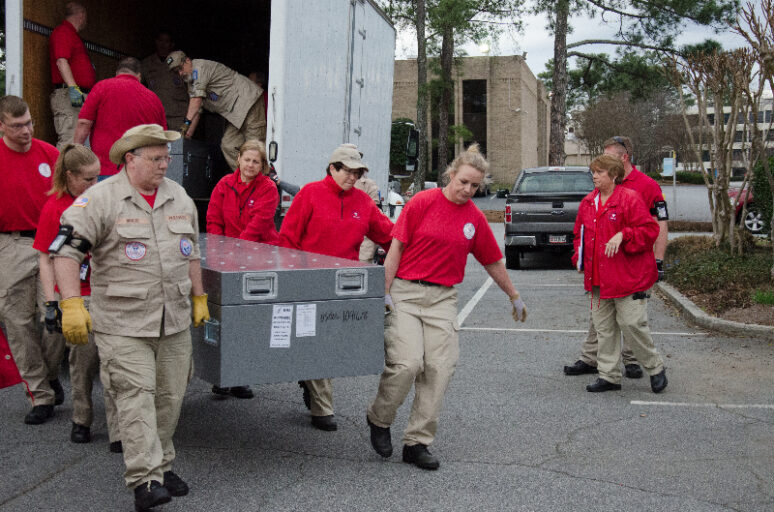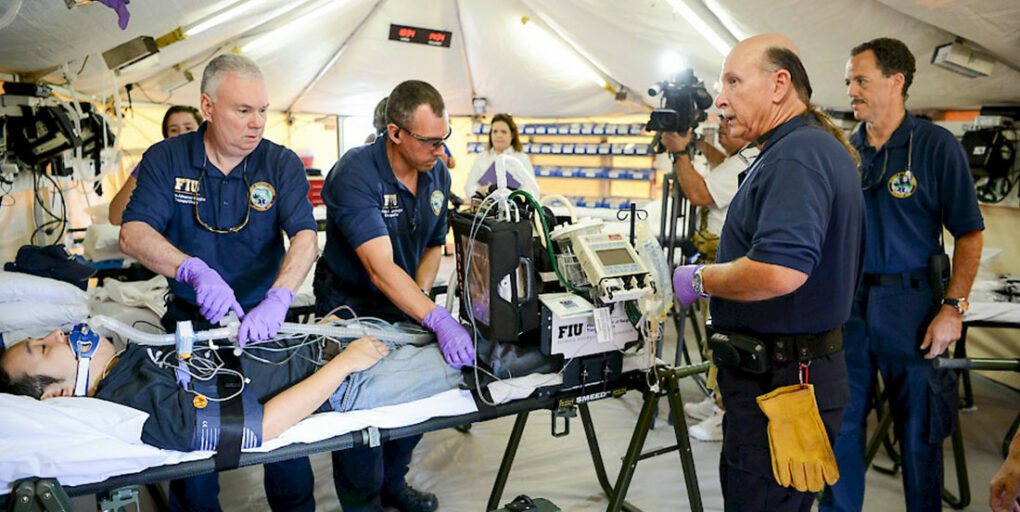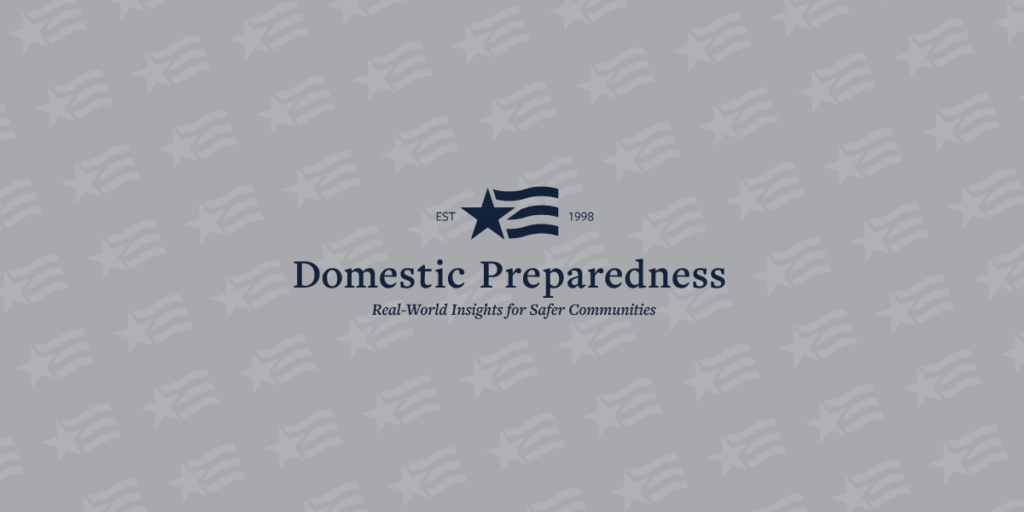Today's Top Picks

Defining Leadership Options in a Disaster Response

Creating a University Disaster Medical Response Team

The How and the Why of Crowd Management

The Evolving Chemical/Biological Terrorism Threat

Today’s Law Enforcement Challenges
Trending
 Bridging Communication Gaps: Lessons from Hurricane Helene by Greg Hauser Hurricanes in 2024 caused widespread damage to infrastructure, leading to a critical but often overlooked issue: isolation. Physical and technological…
Bridging Communication Gaps: Lessons from Hurricane Helene by Greg Hauser Hurricanes in 2024 caused widespread damage to infrastructure, leading to a critical but often overlooked issue: isolation. Physical and technological… Cost Analysis: Protecting the Grid and Electronics… by The Foundation for Infrastructure Resilience Because modern societies are increasingly reliant on electronics, they are more vulnerable to the effects of an electromagnetic pulse event.…
Cost Analysis: Protecting the Grid and Electronics… by The Foundation for Infrastructure Resilience Because modern societies are increasingly reliant on electronics, they are more vulnerable to the effects of an electromagnetic pulse event.… A Systems Thinking Approach to Improving Emergency… by William Chapman “PACE” planning helps organizations fail gracefully, but systems thinking reduces the likelihood of failure altogether. Combining both approaches helps organizations…
A Systems Thinking Approach to Improving Emergency… by William Chapman “PACE” planning helps organizations fail gracefully, but systems thinking reduces the likelihood of failure altogether. Combining both approaches helps organizations… Agroterrorism: A Persistent but Overlooked Threat by Dan Scherr and Tanya M. Scherr Agroterrorism is not new. Considered a subset of bioterrorism, it has become an increasing concern to the U.S. With so…
Agroterrorism: A Persistent but Overlooked Threat by Dan Scherr and Tanya M. Scherr Agroterrorism is not new. Considered a subset of bioterrorism, it has become an increasing concern to the U.S. With so…Trending
 A Systems Thinking Approach to Improving Emergency… by William Chapman “PACE” planning helps organizations fail gracefully, but systems thinking reduces the likelihood of failure altogether. Combining both approaches helps organizations…
A Systems Thinking Approach to Improving Emergency… by William Chapman “PACE” planning helps organizations fail gracefully, but systems thinking reduces the likelihood of failure altogether. Combining both approaches helps organizations… Agroterrorism: A Persistent but Overlooked Threat by Dan Scherr and Tanya M. Scherr Agroterrorism is not new. Considered a subset of bioterrorism, it has become an increasing concern to the U.S. With so…
Agroterrorism: A Persistent but Overlooked Threat by Dan Scherr and Tanya M. Scherr Agroterrorism is not new. Considered a subset of bioterrorism, it has become an increasing concern to the U.S. With so… Bridging Communication Gaps: Lessons from Hurricane Helene by Greg Hauser Hurricanes in 2024 caused widespread damage to infrastructure, leading to a critical but often overlooked issue: isolation. Physical and technological…
Bridging Communication Gaps: Lessons from Hurricane Helene by Greg Hauser Hurricanes in 2024 caused widespread damage to infrastructure, leading to a critical but often overlooked issue: isolation. Physical and technological… Cost Analysis: Protecting the Grid and Electronics… by The Foundation for Infrastructure Resilience Because modern societies are increasingly reliant on electronics, they are more vulnerable to the effects of an electromagnetic pulse event.…
Cost Analysis: Protecting the Grid and Electronics… by The Foundation for Infrastructure Resilience Because modern societies are increasingly reliant on electronics, they are more vulnerable to the effects of an electromagnetic pulse event.…Trending
Domestic Preparedness Journal
Featured in this issue: Editor’s Note: Hazards That Can Affect the Mind, Body, and Outcome, by Catherine L. Feinman; A Holistic Strategy for Responders’ Well-Being, by Camilo Olivieri; Disaster Stress Management in an Emergency Operations Center, by Mary Schoenfeldt; Physical and Mental Injuries in First Responders: Why Wait?, by Pascal Rodier; Not Lost in Translation: A Multilingual Corps Approach, by Diana Sanchez-Vega; Meeting the Psychosocial Needs of Child Survivors, by Emily Heard; Psychosocial Hazards: Preventing Human-Caused Disasters, by I. David Daniels; Caring for the Affected at Family Assistance Centers, by Jennifer Stansberry Miller; How I Became an Accidental Disaster Mental Health Specialist, by Adrienne J. Heinz; Podcast – Seasonal Forecasts & Their Limitations With Dr. Philip Klotzbach
Articles Out Loud

Article Out Loud – A Proven Path: Scouts and the Operational Value of Prepared Youth







Three “I”s to Repairing the Police/Community Relationship